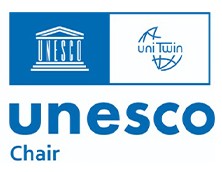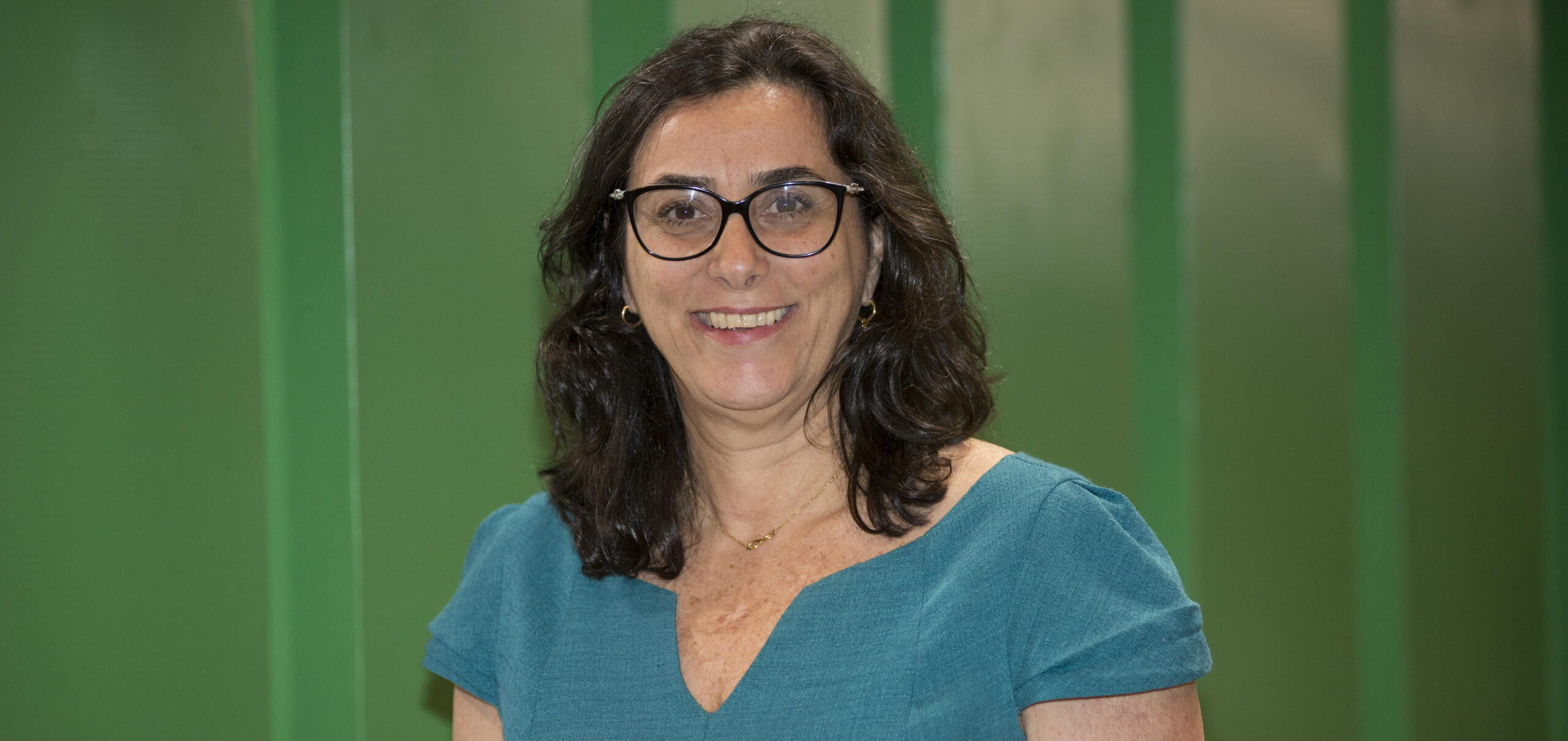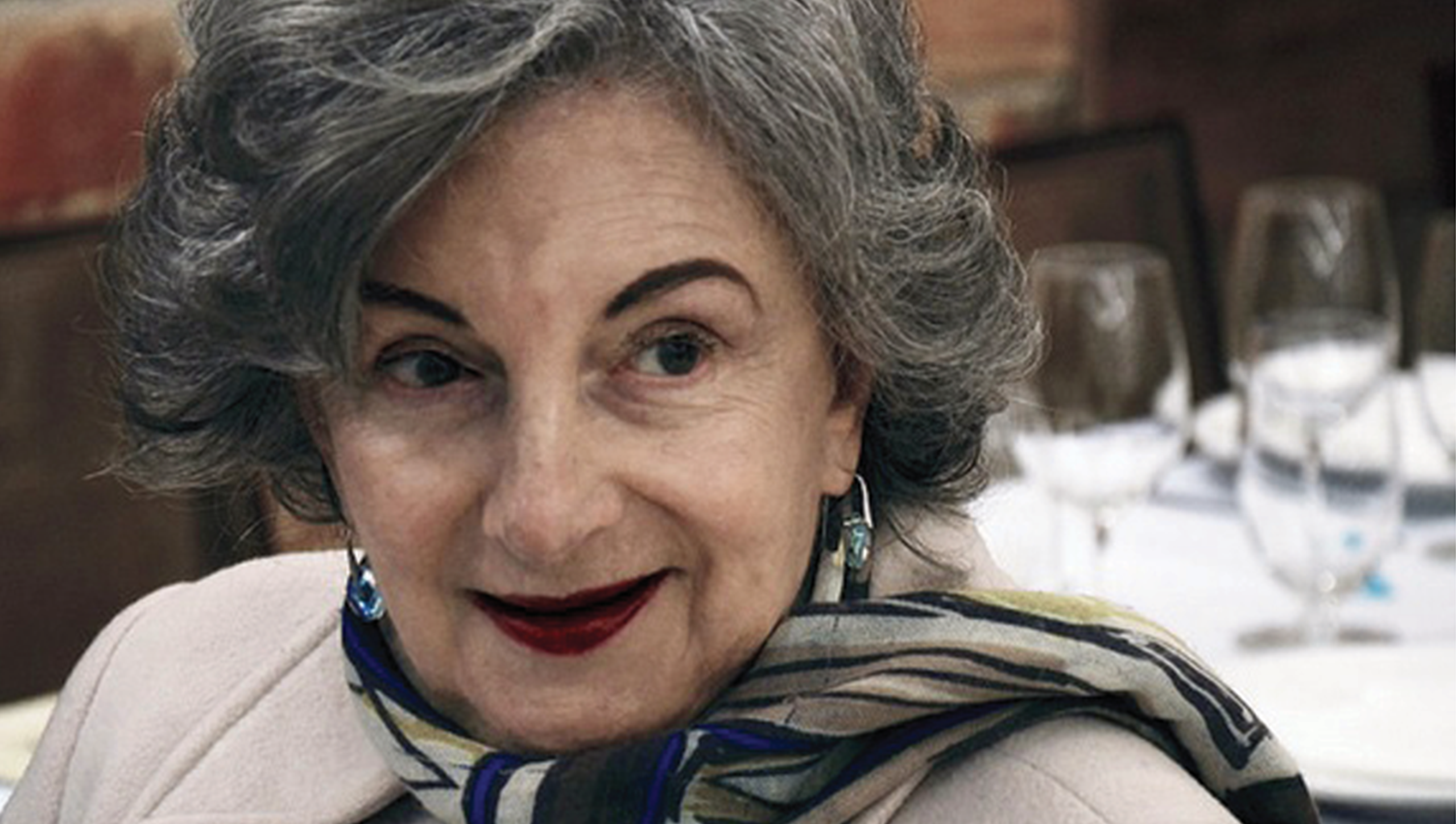Elisa Martins
Journalist, special for Yvirá
Elisa Martins
Jornalista, especial para a Yvirá
SEPTEMBER/OCTOBER 2025 | N°.3 | Rebeca Otero, coordinator of the UNESCO Education Sector in Brazil, warns of the crucial importance of reducing school dropout rates and investing in teacher training and the use of technology for pedagogical purposes, seeking citizens committed to their communities and the planet
“Science and exact sciences are not for girls” is an outdated mindset in a world where more and more women are pursuing careers in science, technology, engineering, and mathematics (STEM). But there is still a long way to go in reducing gender disparities in education. As part of this effort, the EducaStem2030 project was born, led by UNESCO in Brazil to engage high school students in these areas. “The results have been very good, and we will expand it to other states, combining science with gender issues, which is a global priority for UNESCO,” says Rebeca Otero, coordinator of the Organization’s Education Sector in Brazil (UNESCO is the United Nations Educational, Scientific, and Cultural Organization).
In conversation with YVIRÁ, Otero highlights how science can help improve teaching and learning in Brazil, as well as address still-present obstacles, such as the high dropout rates and functional illiteracy in the country. Investment in teacher training and the use of technologies for pedagogical purposes by schools is another crucial point, says Otero, in the pursuit of a full-fledged education. Read the interview below.
How does UNESCO’s EducaStem2030 initiative contribute to combating female exclusion in the fields of science, technology, engineering, and mathematics (STEM)?
Rebeca Otero: The exclusion of girls and women from STEM fields is a global challenge that reflects historical gender inequalities, cultural stereotypes, and educational barriers. UNESCO has consistently worked to address this issue, and the EducaStem2030 initiative, recently launched in Brazil, is a concrete example of this commitment. Aligned with the Sustainable Development Goals (SDGs) of the 2030 Agenda, the EducaStem2030 project seeks to promote gender equity in science through three strategic axes. The first is teacher training. Teacher training is essential to deconstruct stigmas and create school environments that encourage girls to engage in STEM fields. Teachers are guided to recognize and combat unconscious biases, in addition to adopting inclusive and inspiring pedagogical practices. The second axis is student training and empowerment. The project promotes activities with young people, especially high school girls, through meetings with scientists and STEM professionals. Examples like that of researcher Jaqueline Goes, who was part of the team that performed the genetic sequencing of the novel coronavirus from the first cases of COVID-19 in Latin America, show girls that science is also a space for them. These initiatives have already been carried out in states like Bahia and Pernambuco, with very positive results in terms of identification and motivation. Finally, the project encourages social mobilization. In vulnerable communities, the project uses resources such as educational games, communication materials, and cultural initiatives, such as Cine Solar, a solar-powered van that travels through the outskirts of cities delivering workshops and educational videos. This approach expands the initiative’s reach and raises awareness among families and communities about the importance of female participation in science. EducaStem2030 is more than an educational project. It is a transformative initiative that unites science, education, and gender equality. By inspiring girls, training teachers, and engaging society, UNESCO reaffirms its commitment to an education that is inclusive, equitable, and capable of developing future female scientific leaders.
How can science help improve learning in Brazil?
RO: Science is a fundamental ally in transforming education, especially in challenging contexts like Brazil’s. To provide quality education, it is essential that professionals have solid training, stay up-to-date, and base their practices on scientific evidence. The science of learning offers concrete insights into how students learn, which methodologies are most effective, and how to adapt teaching to new cognitive and technological realities. UNESCO has promoted initiatives that highlight gaps in teacher training, such as courses and projects that reveal teachers’ difficulties connecting with students, especially when using digital technologies. This demonstrates the urgency of investing in continuing education that is evidence-based, not just bureaucratic or administrative approaches. The creation of the UNESCO Chair in Science for Education, which produced Yvirá, represents a strategic advance in this field. This initiative seeks to expand access to scientific knowledge about teaching and learning, valuing education as a dynamic, continuous process centered on human development. Therefore, it is essential that municipal and state education departments encourage science-based pedagogical practices, promote training that engages with evidence about learning, and recognize teachers as professionals who teach based on knowledge, research, and critical reflection. Valuing science in education is a necessary path to ensuring quality, equity, and innovation in Brazilian education.
Schools need to transcend their walls and become living spaces for social transformation.
How does the quality of education impact school dropout rates, especially in the second cycle of elementary school, and what measures should be implemented to reverse this situation?
RO: School dropout rates in the second cycle of elementary school are a direct reflection of poor educational quality. When students fail to grasp basic content, such as interpreting a statement or solving math problems, they accumulate gaps that make it difficult to stay in school. This disconnection between what is taught and what is learned generates frustration, demotivation, and often, dropping out. Furthermore, factors such as age-grade imbalance, the need to work to supplement family income, and the lack of nearby schools, especially in rural and indigenous areas, exacerbate the problem. School dropout is multifactorial and requires integrated and contextualized responses. UNESCO advocates that education should be inclusive, equitable, and of high quality, and has promoted projects that address precisely these issues. One example is the use of methodologies that connect school content to students’ realities, such as projects in which young people investigate problems in their surroundings, such as improper waste disposal, while simultaneously learning subjects such as science, chemistry, and Portuguese. This approach strengthens the bond with school, encourages youth leadership, and contributes to student retention. Schools need to transcend their walls and become living spaces for social transformation. This requires effort, but it is essential to guarantee the right to education and combat school dropout effectively and sustainably.
How can information and communication technologies, such as cell phones, tablets, and the internet, be used to benefit students in schools?
RO: UNESCO recognizes that digital technologies are an integral part of students’ lives and that their conscious and pedagogical use can significantly enrich teaching and learning processes. Although studies indicate that the inappropriate use of these technologies, especially for non-educational purposes, can reduce concentration and harm academic performance, the solution lies in the responsible and strategic integration of these resources into the school environment. When used with pedagogical intention, information and communication technologies (ICTs) expand access to knowledge, promote inclusion, and encourage student empowerment. A clear example is access to digital libraries by students in rural areas, where physical library collections are limited. Online discussion forums, learning platforms, and educational videos can also deepen content understanding and promote peer collaboration. However, for this potential to be fulfilled , it is essential that school curricula include Media and Information Literacy (MIL). This is a skill that teaches students to critically evaluate information sources, recognize misinformation, and navigate safely in the digital environment. UNESCO has promoted MIL in several countries, including in teacher training. It is also crucial that teachers be trained to integrate technologies meaningfully, from their initial training. The speed at which technology evolves requires that educational systems be prepared to keep up with these changes, with public policies that support this transition. It is also important to use Open Educational Resources (OER), such as virtual libraries and platforms like YouTube EDU, which offer content aligned with the National Common Curricular Base (BNCC) and address topics such as human rights, gender equity, and sustainability. Technology, when properly managed, can be a bridge between students’ knowledge and reality. The school’s role is to mediate this use, ensuring that digital devices are not merely tools for distraction, but instruments of learning, inclusion, and citizenship.
How can initiatives like the Global Alliance on Learning Science for Education, created by UNESCO Headquarters in Paris and of which the CpE Network, responsible for Yvirá, is a member, be relevant to these efforts?
RO: The creation of the Global Alliance on Learning Science for Education by UNESCO represents an important milestone in the international coordination of efforts aimed at improving educational quality based on scientific evidence. This initiative reflects UNESCO’s role as a specialized agency of the United Nations, working at the intersection of education, science, and culture, fostering global networks of cooperation and innovation. The Alliance brings together researchers, educators, policymakers, and institutions committed to applying learning science—including neuroscience, cognitive psychology, pedagogy, and educational technology—to transform school practices and public policies. UNESCO’s work in this area is a concrete example of how international cooperation can generate profound local impacts. By integrating science and education, these initiatives help build more equitable, inclusive education systems that are prepared for the challenges of the 21st century.
What is the essential role of early childhood education in reducing inequalities of opportunity for children?
RO: Early childhood education is one of the most effective strategies for promoting social equity and breaking intergenerational cycles of poverty. UNESCO recognizes that the first years of life are crucial for children’s cognitive, emotional, physical, and social development, and that investments in this stage have lasting effects throughout their lives. By ensuring that all children have access to quality early childhood education, we are not only strengthening their learning capacities but also promoting health, nutrition, safety, and stronger family bonds. Reading from an early age, for example, stimulates the development of language, imagination, and the ability to express themselves—key skills for future academic success. UNESCO advocates for an integrated, intersectoral approach that involves schools, families, communities, and public policies. Early childhood projects must consider the multiple dimensions of child development and act in a coordinated manner to ensure that no child is left behind. In this context, schools must be much more than a space for instruction—they must be a place for care, listening, and human development. When well-structured and aligned with effective public policies, early childhood education contributes decisively to reducing inequalities and ensuring that all children have a fair starting point in their educational and life trajectories.
What is needed for combating illiteracy to become a national priority? Why is changing this scenario crucial?
RO: Functional illiteracy, which affects approximately three in ten Brazilians, according to the Functional Literacy Indicator (INAF), is one of the most serious and persistent challenges facing education in Brazil. UNESCO warns that this phenomenon is not limited to the lack of schooling, but to the presence of intra-school exclusion, in which students attend school, advance through the grades, but do not develop basic reading, writing, and logical reasoning skills. This situation is a direct result of the lack of educational quality, especially in the early years of schooling, and is deeply linked to the lack of effective policies for early childhood education and literacy at the right age. Often, children are enrolled but are not properly stimulated, do not receive adequate pedagogical support, and do not learn. This compromises their educational trajectory and perpetuates social inequalities. UNESCO has emphasized that literacy is the foundation for the exercise of citizenship, productive inclusion, and sustainable development. Changing this scenario is urgent and possible—but it requires political commitment, social mobilization, and continuous investment. Combating functional illiteracy is not just an educational issue. It is a matter of social justice.
What should be the main focus of investments when considering the future of Brazilian education? And how can we simultaneously maintain attention to emerging issues, such as the climate crisis?
RO: The future of Brazilian education requires a deep commitment to the structural transformation of the education system, and this involves reimagining the role of education in society. UNESCO, through the publication “Reimagining Our Futures Together: A New Social Contract for Education”, proposes precisely this reflection: the need for a new collective pact, based on solidarity, equity, social justice, and sustainability. This new social contract for education is not the exclusive responsibility of governments or educational institutions. It requires the engagement of all of society: families, communities, the private sector, youth, social movements, and international organizations. In the case of Brazil, where quality education for all has not yet been achieved, this pact is even more urgent. The main focus of investment should be ensuring inclusive, equitable, and quality public education, with special attention to teacher training, the development of the teaching profession, school infrastructure, and the promotion of curricula that develop 21st-century skills such as critical thinking, empathy, collaboration, and global citizenship. At the same time, it is essential that schools be connected to major contemporary challenges, such as the climate crisis, the digital transition, and social inequalities. Education must prepare students not only for the job market, but also to understand and transform the world. The school of the future is one that develops conscious citizens, capable of lifelong learning, respecting others, caring for the planet, and contributing to more just societies. As UNESCO emphasizes, education is much more than transmitting content: it is developing individuals who know how to be, coexist, do, and transform.






